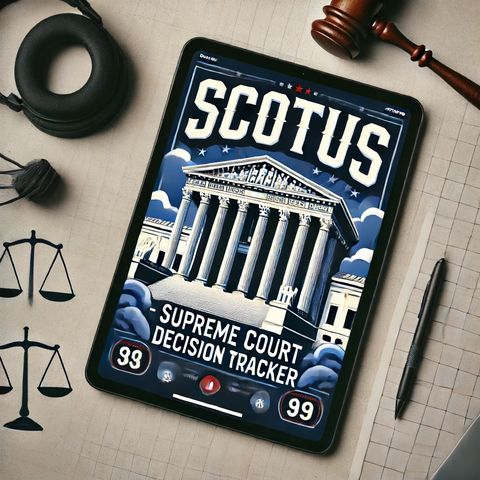"Reversal of Chevron Precedent Sparks Debate on Federal Agency Powers and Environmental Regulations"

Regístrate gratis
Escucha este episodio y muchos más. ¡Disfruta de los mejores podcasts en Spreaker!
Descarga y escucha en cualquier lugar
Descarga tus episodios favoritos y disfrútalos, ¡dondequiera que estés! Regístrate o inicia sesión ahora para acceder a la escucha sin conexión.
"Reversal of Chevron Precedent Sparks Debate on Federal Agency Powers and Environmental Regulations"
Esta transcripción es generada automáticamente. Ten en cuenta que no se garantiza una precisión absoluta.
Descripción
In a dynamic societal landscape, recent Supreme Court decisions are shaping the future of business operations and environmental policies. Central to the ongoing discourse is a significant turn taken by...
mostra másSenator Elizabeth Boxes is at the forefront, spearheading efforts to restore the authority federal agencies had before this judicial shift. By potentially reintroducing a version of the Chevron deference, Senator Warren and her allies aim to reequip federal agencies with the capacity to effectively enforce regulatory measures, especially in sectors crucial for public welfare and environmental conservation.
This judicial shift does not sit in isolation but connects with broader repercussions that concern both environmental safeguards and business operations. For instance, a lawsuit against the Army Corps of Engineers reflects this tension. Plaintiffs are advocating for the conversion of a landfill site along Lake Michigan back into a park—a promise that residents of the Southeast Side claim was initially made but not fulfilled. Such cases underscore the environmental stakes tied to legal interpretations and the enforcement powers of federal entities.
From the perspective of the business community, attorneys are voicing concerns over the potential long-term ‘ripple effects’ of the latest Supreme Court rulings. The precise fear is around increased liabilities and stricter scrutiny that businesses might face in a tightened regulatory environment. The direct costs and strategic adjustments necessary to navigate this new legal landscape may impose significant burdens on companies, affecting their operational sustainability and economic outcomes.
While the drive led by Senator Warren seeks to recalibrate the balance of power between federal agencies and judicial oversight, these legislative efforts will likely encounter both support and opposition, fueling a complex debate on the role of governmental agencies in the regulation and the larger implications for democracy and economic health.
In sum, the undoing of the Chevron deference has set the stage for a multi-faceted battle that encompasses environmental advocacy, business interests, and the overarching framework of federal regulatory authority. As the conversation continues to unfold, the coming months will be crucial in determining the trajectory of federal agency power and its impact across various sectors. This scenario not only epitomizes the interplay between law and policy but also highlights the intricate nature of governance in addressing divergent interests within a democracy.
Información
| Autor | QP-4 |
| Organización | William Corbin |
| Página web | - |
| Etiquetas |
Copyright 2024 - Spreaker Inc. an iHeartMedia Company
